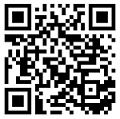TEACHERS’ PERCEPTION TOWARD THE IMPLEMENTATION OF STUDENTS CENTERED METHOD IN COMPARISON TO TEACHERS CENTERED METHOD IN THE SECONDARY SCHOOL IN RIAU PROVINCE.
Abstract
The objective of the study was to know the teachers perception toward theimplementation of Students Centered Method ( SCM) in comparison to TeacherCentered Method(TCM) to the secondary school studentsRiau province. Thesubject of the study was 28 the secondary school teachers of six regencies in Riauprovince.The result of the study indicated that English teachers moderately to highlysupported the implementation of SCM in teaching reading. They showed theirgreater agreement to SCM method than TCM in terms of conditional, conceptual ,instructional, and students - learning perspectives. The comparison of teachers’perception toward the implementation of SCM were significantly greater than theirperception toward TCM in teaching reading. For classroom assessment, grammarand vocabulary mastery, and content learningfor instructional perspectivesdimension and memorizing strategy and everyday reading habit for studentslearning perspectives dimension, teachers showed positive perspective to TCMthan to SCM but there was no significant differences on means value of bothmethods. Lastly, there were no significant differences on teachers perceptionregarding their, ages, sex, education except for those teaching experiences above20 years but with no significantly differed on mean value of both .
Keywords: perception, student centered method, teacher centered method
Keywords
Full Text:
PDFReferences
Bruffee, K. “Sharing Our Toys: Cooperative Learning Versus Collaborative Learning,” Change, January/February, 1995, p. 12.
Bloom, Benjamin.1956. Taxonomy of Educational Objectives: The Clasification of Educational Goal. Susan Faeuer Company.Inc
Balitho,R.1990. Teaching Methodology for the Nineties : An External Triangle In Sarinee Avinon, ( ed) Roles of teachers, Learners, and teaching Materials .
Bloom, Benjamin.1956. Taxonomy of Educational Objectives: The classification of educational goals. Susan Tauer Company,Inc.
Carter, R and Long. M.N. 1991. Teaching Literature. Hongkong: Longman.
Cherry, Kendra. What is Socio-cultural Theory. www.sim.edu.sg/JOCE [20 March 2012]
Ellington, H. and Shirley, Earl. 1999. Facilitating Student Learning: A Practical Guide for tertiary-level teachers. Skudai:Universiti Teknologi Malaysia.
Gardner, H. 1983. Frames of Mind: The Theory of multiple Intelligences. New York: Basic Books.
Lipsey, M.W., and Wilson, D.B., “The Efficacy of Psychological, Educational and Behavioral Treatment: Confirmation from Meta- Analysis,” American Psychology, 1993: Vol. 12 p. 1181–1209
Johnson, D., R., Johnson, and K. Smith. 1998. Active Learning: Cooperation in the College Classroom, 2nd ed., Interaction Book Co., Edina, MN.
Flender, P., and R. Vogel. 2003. Methods of Teaching: Applying Cognitive Science to Promote Student Learning, McGraw Hill Higher Education.
O’Malley.J.Michele and pierce, Lorraine Valdez .1995. Authentic Assessment for English language Learners: Practical Approach for teachers. Ontario: AdisonWesley Publishing Company.
Bonwell, C.C., and J. A. Eison,1991. “Active Learning: Creating Excitement in the Classroom,” ASHEERIC Higher Education Report No. 1, George Washington University, Washington, DC. 1991.
Online Collaborative Learning in Higher Education, , accessed 12/3/2003.
Millis, B., and P. Cottell, Jr. 1998. “Cooperative Learning for Higher Education Faculty,” American Council on Education, ORYX Press.
Prince,M.J. 2004. Does Active learning Work?, “ A Review of the Research”. J.Eng, Ed., 93 (3),223, < http://www.nesu.edu/felder-public/papers/Prince_al.,Pdf>
R.M Felder (2012) Student-Centered Teaching and Learning http://www4.ncsu.edu/unity/lockers/usesrs/f/felder/public/student-centered teaching.
Felder, RM and Bullard, L.G. 2007. A Student Centered Approach to teaching: Materials and Energy Balances. Chem.Engr. Education. Vol 41.No.3, Summer. ChE Division of ASEE.
Smith, B., and J. MacGregor, “What is Collaborative Learning?, (http://www.nesu.edu/felder-public/papers/Prince_al.,Pdf>.
Vygotsky. L.S. 1978. Mind and Society: The development of higher psychological process. Cambridge, M.A. Harvard University Press.
Zainil.2005. Motivating the Reluctant language learner. Padati-Web Journal. http://www.depdiknas.go.id ( September 20th,2011).
DOI: http://dx.doi.org/10.31258/sorot.7.2.2004
Refbacks
- There are currently no refbacks.
Copyright (c) 2012 Erni Erni

This work is licensed under a Creative Commons Attribution 4.0 International License.
Jurnal ini terdaftar dan terindeks pada:










